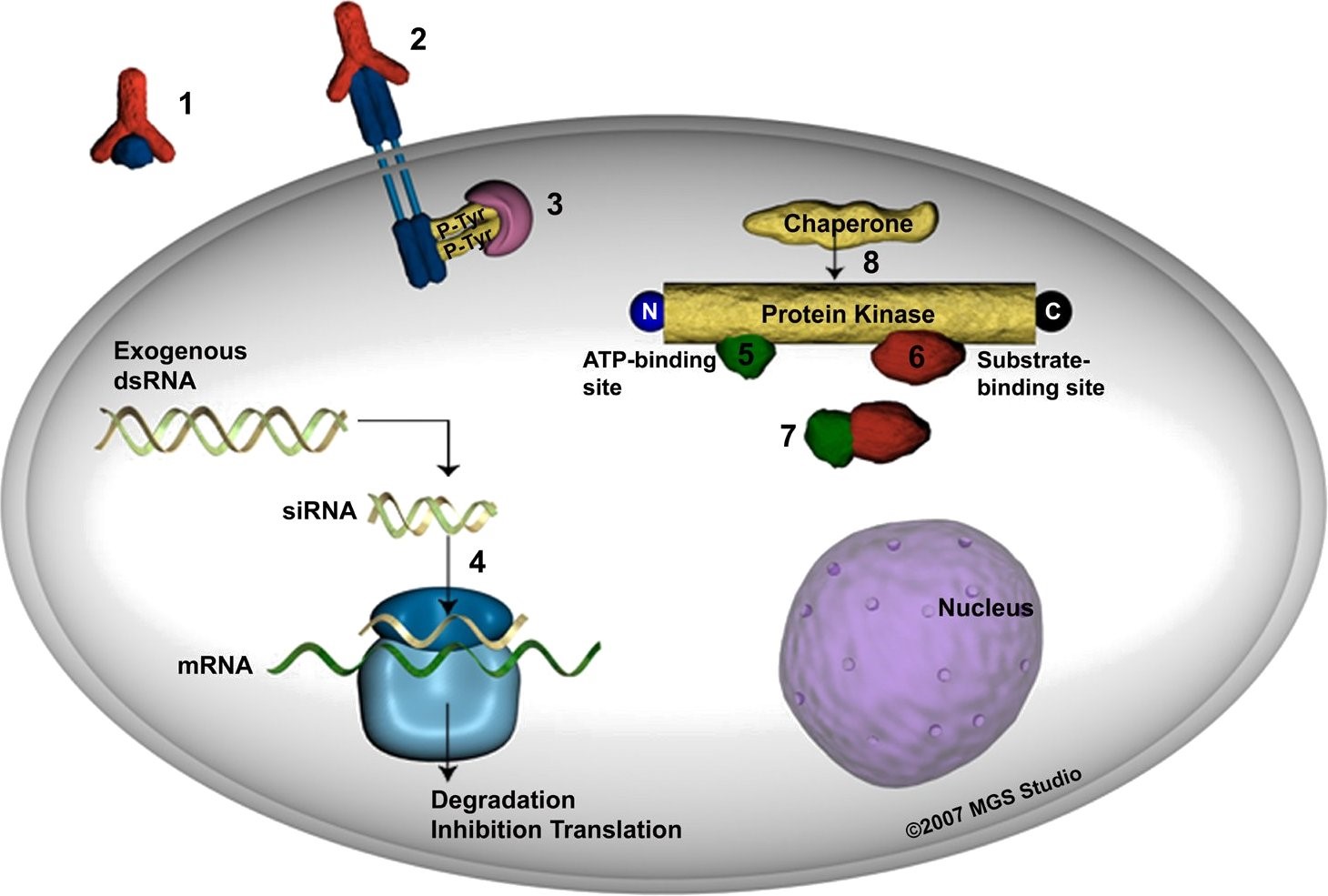In Vitro Protein Kinase Assay Service
Protein kinase are enzymes that catalyze the phosphorylation of proteins. It can transfer the phosphoric acid from ATP and covalently bind to the hydroxyl group of some serine, threonine or tyrosine residues in specific protein molecules, thus changing the conformation and activity of substrate proteins and kinases. Protein kinases can be divided into receptor tyrosine kinases, non-receptor tyrosine kinases, serine/threonine kinases, cellcycle-dependent kinases, etc. As the essence of enzymes is proteins, the changes in their conditions during transportation and storage, including changes in sunlight, turbulence, and acid and base erosion, will lead to changes in their activity, thus affecting the experimental results or their effects. In theory, any method that can detect phosphorylation products can be used to detect the biochemical activity of protein kinase. However, each detection method needs to be adjusted according to the properties of kinases and substrates.
Profacgen provides in vitro protein kinase assay used the methods of radioosotope labeled ATP and fluorescent labeling (including fluorescence polarization, fluorescence conjugated energy transfer, time-resolved fluorescence and chemiluminescence). These methods all take microporous plate as the carrier, which has the advantages of low reagent consumption, fast detection speed and high flux.

Fig1. Major mechanisms by which inhibitors can prevent the activity of protein kinases[1]
Common methods and its advantages for protein kinase assay Profacgen offers:
1. Radioisotope method : including membrane filtration and close scintillation counting.
Protocol:
- Prepare the kinase substate to capture on the plate surface by the capture agent.
- The kinase and isotopically-labled ATP (γ-33P-ATP) are added to the plate well.
- The 33P is incorporated into the captured substrate during the kinase reaction, which brings the 33P into the scintillant coating on the plate so that the signal can be detected on the microplate scintillation counter. Or detect the kinase activity by ion exchange paper via filter-binding method.
Advantages:
1) Most kinase proteins now available;
2) Good binding ability of proteins to Peptide substrate;
3) The high radioosotope sensitivity and the accurate results which is considered as the gold standard for protein kinase assay.
2. Homogeneous non-radioisotope method: the remaining ATP after the kinase reaction is used to convert luciferin into oxidative luciferin, and the fluorescence signal value was inversely proportional to the activity of the kinase. For some nonpeptide substrates and atpase, we offer the ADP conjugation or ADP antibody to test the activity of protein kinase.
Advantages: low cost, suitable for a variety of assay conditions and high-throughput screening of kinase inhibitors( KI).
Our current in vitro protein kinase assays containing most kinases can offer you a comprehensive service. Profacgen offers you the broadest set of the kinase activity assay which accuracy are high and can drive you to a correct and advancing results and conclutions.
Reference:
[1]Protein kinase inhibitors. Nancy Gerits1 and Ugo Moens2. http://nens.yellowcouch.org/articles/pki07/ProteinKinaseInhibitors2007.html